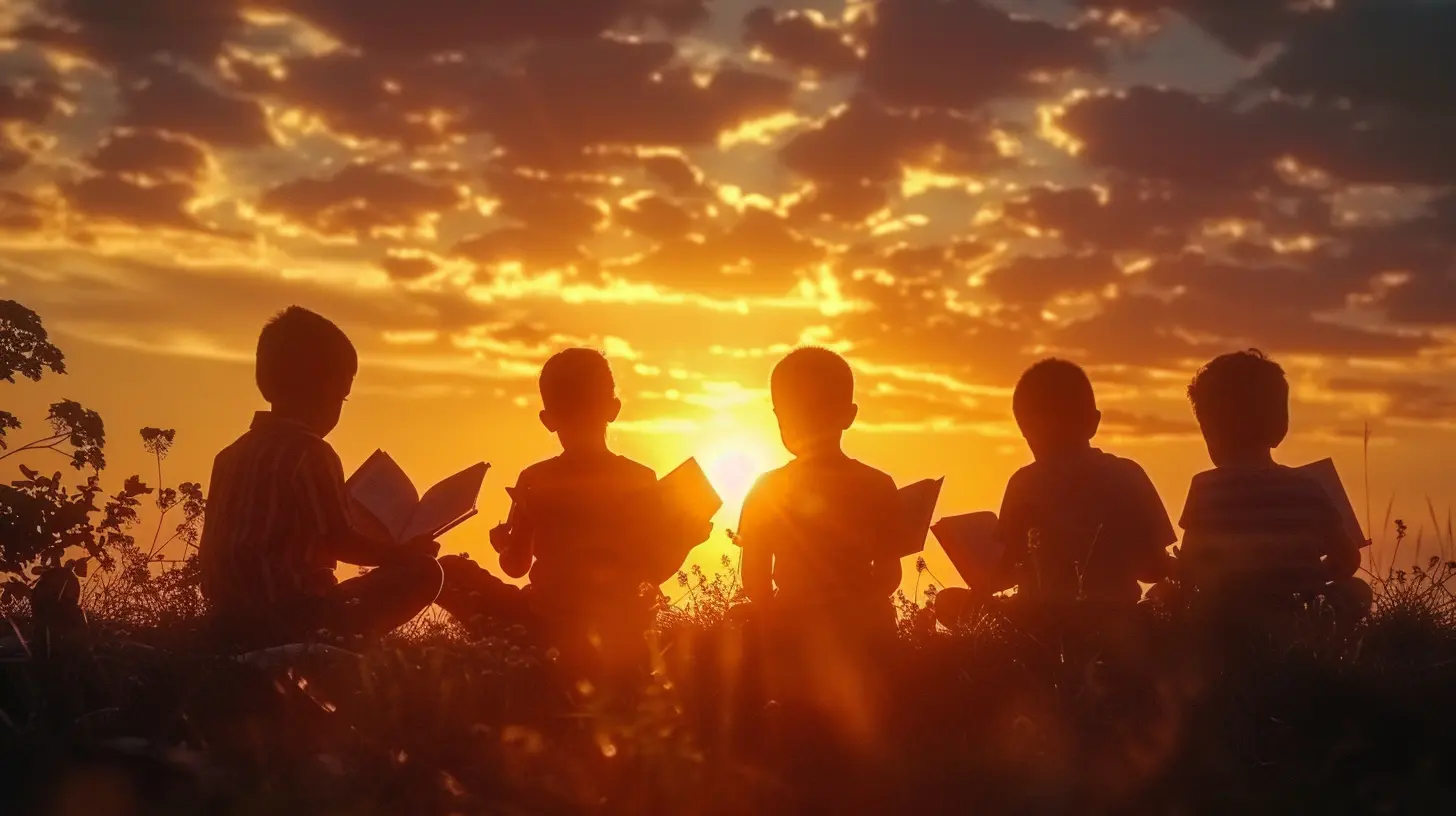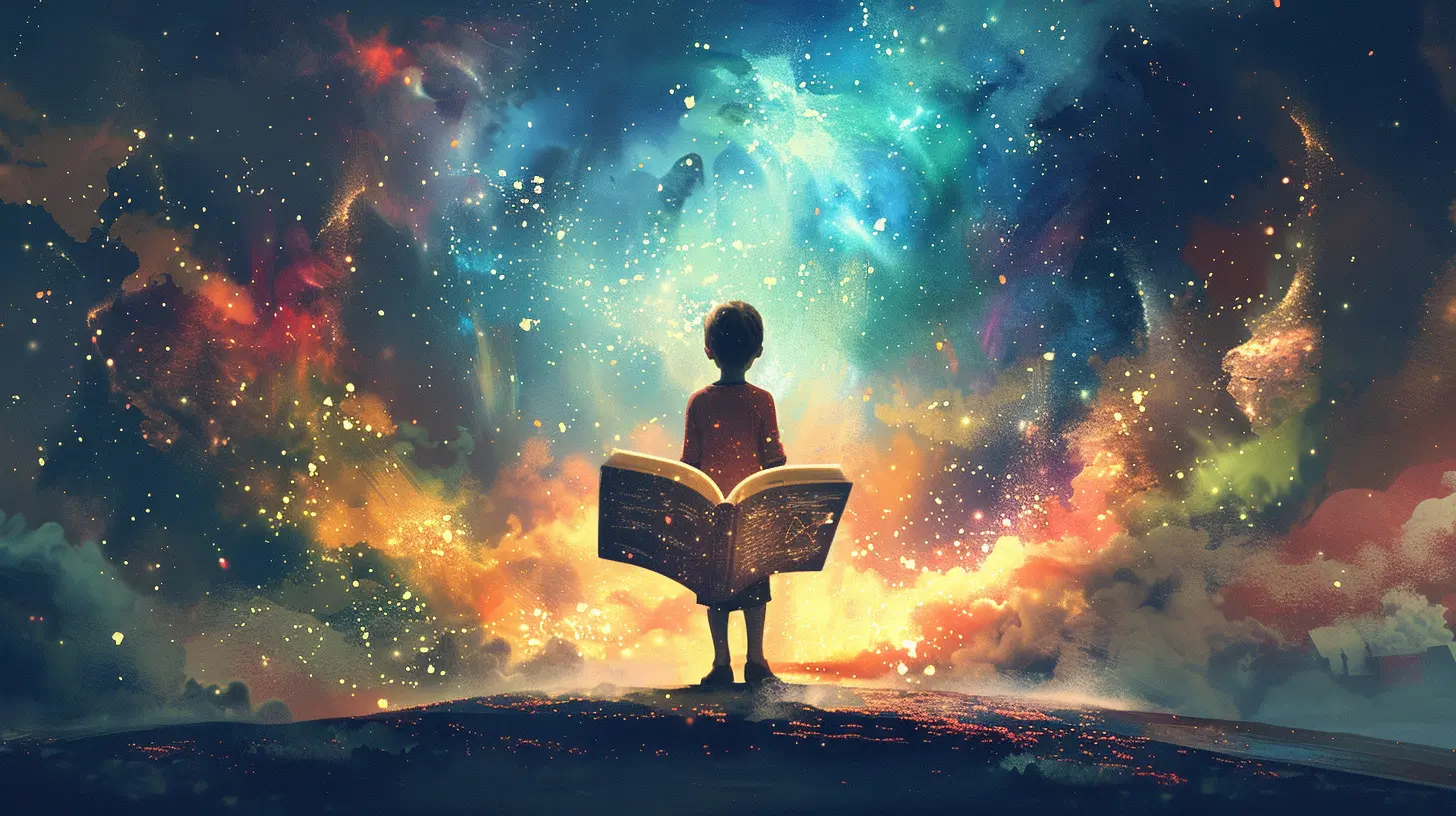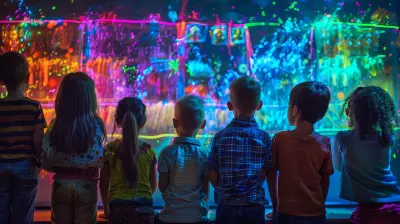How to Use Storytelling to Inspire and Motivate Students
1 June 2025
Storytelling is as old as human civilization. From ancient cave paintings to bedtime tales, humans have used stories to pass down knowledge, teach morals, and inspire action. But did you know storytelling can be one of the most powerful tools in education?
Teachers who incorporate storytelling into their lessons can capture students' attention, make learning more memorable, and ignite a passion for knowledge. In this article, we'll discuss how you can use storytelling to inspire and motivate your students, making learning a truly engaging experience.

Why Storytelling Works in Education
Think about the last time you heard a really good story. Maybe it was a gripping novel, a fascinating documentary, or even a friend sharing a personal experience. Stories have an undeniable power—they captivate, engage, and linger in our minds long after we've heard them.So, why does storytelling work so well in education?
1. Stories Make Lessons Memorable
Facts and figures can be dry, but weave them into a compelling narrative, and suddenly they stick. Imagine teaching World War II solely with dates and names—students would struggle to remember them. But introduce a story of a young soldier’s journey, and those events become personal and unforgettable.2. Emotional Connection Enhances Learning
People connect with stories on an emotional level. When students feel something—whether it’s excitement, empathy, or curiosity—they’re more likely to engage with the material and retain information.3. Stories Encourage Critical Thinking
A good story doesn't just provide information; it invites students to analyze, predict, and interpret. This helps develop critical thinking skills that are crucial in and beyond the classroom.
How to Use Storytelling in the Classroom
Okay, so we know storytelling is powerful. But how can you actually use it in a way that feels natural and effective? Here are some practical strategies:1. Start with Personal Stories
Students love to hear real-life experiences. Sharing personal stories—whether they’re about success, failure, or a funny moment—makes the lesson more relatable and engaging.For instance, if you're teaching about perseverance, share a moment when you faced a challenge and didn’t give up. This makes the lesson feel more genuine and encourages students to apply the principle to their own lives.
2. Turn Abstract Concepts into Narratives
Complex topics can be difficult for students to grasp. Instead of presenting abstract concepts in a dry way, turn them into stories.For example, if you're teaching about gravity, tell the story of Isaac Newton sitting under the apple tree. If you're explaining democracy, create a fictional village where citizens vote on decisions. This makes abstract ideas concrete and easier to understand.
3. Use Historical and Literary Stories
History and literature are packed with inspiring stories. Instead of just stating facts, bring historical figures and literary characters to life.Rather than simply listing Martin Luther King Jr.’s achievements, tell the story of his childhood struggles, his defining moments, and his dream for equality. This helps students see historical figures as real people, making their legacies more impactful.
4. Encourage Students to Create Their Own Stories
Storytelling shouldn’t just come from the teacher—students should be encouraged to create and share their own stories.Assign projects where students write autobiographical essays, create fictional stories related to lessons, or even retell historical events from a unique perspective. This not only improves creativity but also deepens understanding of the subject matter.
5. Use Multimedia and Digital Storytelling
In today’s digital age, storytelling isn't just about words on a page. Use videos, podcasts, and interactive storytelling apps to make lessons come alive.For example, a documentary about space exploration can be more engaging than just describing the facts. Or, an animated short film on environmental issues can be more impactful than a written article.
6. Gamify Learning Through Story-Based Scenarios
Gamification can turn a lesson into a fun and interactive experience. Use role-playing games, mystery-solving activities, or choose-your-own-adventure stories to teach a concept.For instance, if you're teaching about ecosystems, students could take on roles as different animals and navigate environmental challenges. This type of storytelling makes learning feel like an exciting journey rather than a chore.

The Power of Inspirational Storytelling
Sometimes, all it takes is one powerful story to change a student's perspective. Inspirational stories can encourage students to dream big, build resilience, and stay motivated.1. Stories of Overcoming Obstacles
Telling students about people who faced and overcame challenges can be deeply motivating. Share stories of famous scientists, artists, athletes, and leaders who struggled before reaching success.For example, J.K. Rowling was rejected by multiple publishers before Harry Potter became a global sensation. Thomas Edison failed thousands of times before inventing the lightbulb. These stories teach students an important lesson: failure is not the end, but a step toward success.
2. Real-Life Stories from Students
Sometimes, the most inspiring stories come from peers. Encourage students to share their own journeys—perhaps a time they overcame a fear, achieved a personal goal, or helped someone in need.This not only builds confidence but also fosters a supportive and inclusive classroom environment.
3. Stories That Inspire Kindness and Empathy
Storytelling is an excellent way to nurture empathy in students. Stories about kindness, inclusion, and respect help build a positive classroom culture.For instance, reading a story about a child who stands up to a bully can lead to meaningful discussions about courage and compassion.

Overcoming Challenges in Storytelling
While storytelling is a powerful tool, it can come with challenges. Here’s how to handle them:1. Keeping Stories Relevant
It’s essential to pick stories that relate to the subject matter and the students' experiences. If a story feels too distant or unrelated, it may lose its impact.2. Engaging Different Learning Styles
Not all students absorb information the same way. Some are visual learners, others prefer auditory learning, and some learn best through hands-on activities. Mix up storytelling styles—use visuals, act out scenarios, or have students participate in storytelling activities.3. Maintaining Focus
Sometimes, stories can go off track or become too lengthy. Keep your storytelling concise and relevant. If the story starts to drag, students may lose interest.Conclusion
Storytelling isn't just about entertainment—it's a powerful educational tool. When used correctly, it can transform lessons, spark curiosity, and create lasting motivation in students.So, the next time you're preparing a lesson, think about how you can incorporate a story. Whether it's a personal anecdote, a historical narrative, or an imaginative scenario, a well-told story has the potential to inspire and empower students in a way that traditional methods often can't.
And who knows? The story you tell today might be the one that changes a student's perspective forever.
all images in this post were generated using AI tools
Category:
Student MotivationAuthor:

Olivia Chapman
Discussion
rate this article
3 comments
Devin McGillivray
This article effectively highlights the power of storytelling in education. By connecting with students on an emotional level, educators can inspire and motivate them to engage deeply with the material. Practical examples would enhance the discussion and provide actionable insights for teachers.
June 12, 2025 at 10:39 AM

Olivia Chapman
Thank you for your insightful comment! I appreciate your suggestion for practical examples and will consider including them in future discussions to provide actionable insights for educators.
London Robinson
This article offers valuable insights into the power of storytelling in education. However, it would benefit from exploring how diverse narratives can cater to varied student backgrounds and learning styles. Additionally, practical examples of storytelling techniques in different subjects could further enhance its applicability and effectiveness in inspiring all students.
June 11, 2025 at 2:46 AM

Olivia Chapman
Thank you for your feedback! I'll consider incorporating diverse narratives and practical examples in future updates to enhance the article's impact.
Aris Wells
This article offers valuable insights into the power of storytelling in education. By harnessing narratives, educators can create engaging and relatable lessons that inspire students. While storytelling is a great tool, it's essential to balance it with other teaching methods for a well-rounded approach to learning.
June 9, 2025 at 10:45 AM

Olivia Chapman
Thank you for your insightful comment! I completely agree that balancing storytelling with diverse teaching methods enhances the learning experience.



